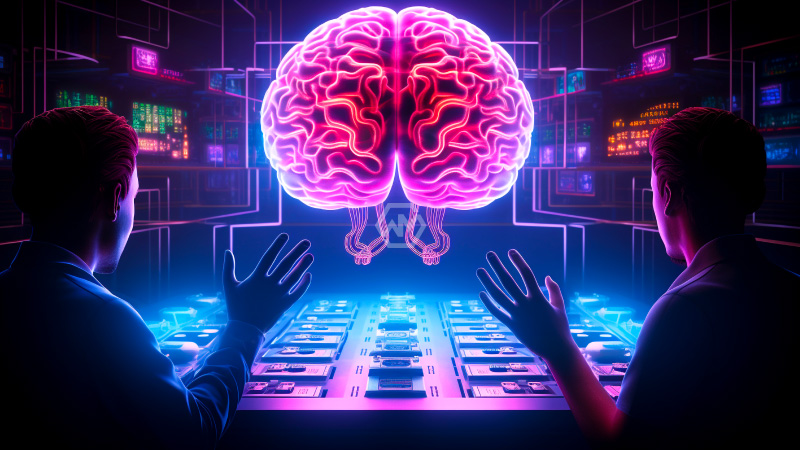- Chinese researchers develop an AI model mimicking brain neuron behavior.
- New model promises reduced energy consumption compared to traditional silicon-based processors.
- The approach could shift AI development towards more sustainable computing solutions.
Scientists in China have introduced a novel AI model that replicates the behavior of neurons in the human brain, offering a potential solution to the high energy demands of current AI systems.
The human brain operates efficiently with minimal power, utilizing about 20 watts despite its complex network of 100 billion neurons and 100 trillion synapses.
New AI Model Mimics Brain Neurons for Sustainable Computing
A recent study from China introduces a pioneering AI model designed to emulate the behavior of neurons in the human brain. This development is significant because it addresses the escalating energy demands of current AI technologies, which are largely dependent on silicon-based processors. Researchers Li Guoqi, Xu Bo, and Tian Yonghong have created a model that not only mimics neuronal activity but also seeks to replicate the brain’s efficient computational processes.
Current AI systems are characterized by their large-scale neural networks, which are notorious for their high energy consumption. In contrast, the human brain, with its immense complexity, operates on a fraction of the power, making it a model of energy efficiency. This new AI model could represent a major shift towards more sustainable computing practices, potentially reducing the reliance on energy-intensive processors.
The research highlights a growing interest in developing AI technologies that mirror the brain’s operations. By creating models that closely resemble neuronal behavior, scientists hope to unlock new possibilities in AI development while addressing critical concerns related to energy consumption and interpretability. This approach could pave the way for more efficient and environmentally friendly AI systems.
Ultimately, if this model proves effective, it may significantly alter the trajectory of AI research and development. As the technology advances, it could lead to more innovative solutions that balance computational power with sustainability, offering a promising future for AI.
This breakthrough in AI research represents a significant step toward more energy-efficient computing. By emulating the brain’s neuronal behavior, the new model could reshape the future of AI, making it both more sustainable and capable of tackling complex problems with reduced energy demands.
“Researchers Li Guoqi and Xu Bo from the Chinese Academy of Sciences’ Institute of Automation, along with Peking University’s Tian Yonghong, noted that the two models shared a symbiotic relationship.”



